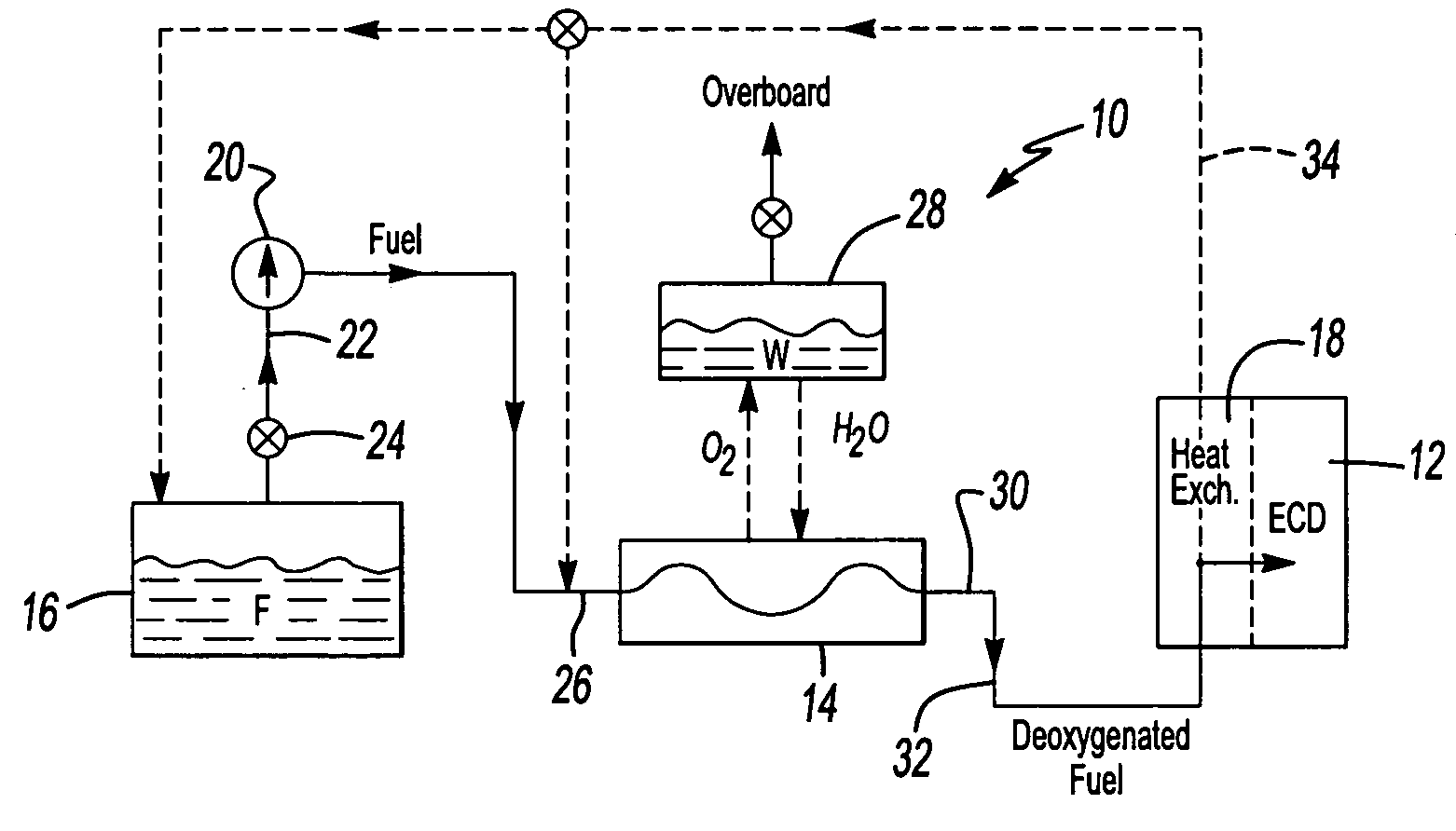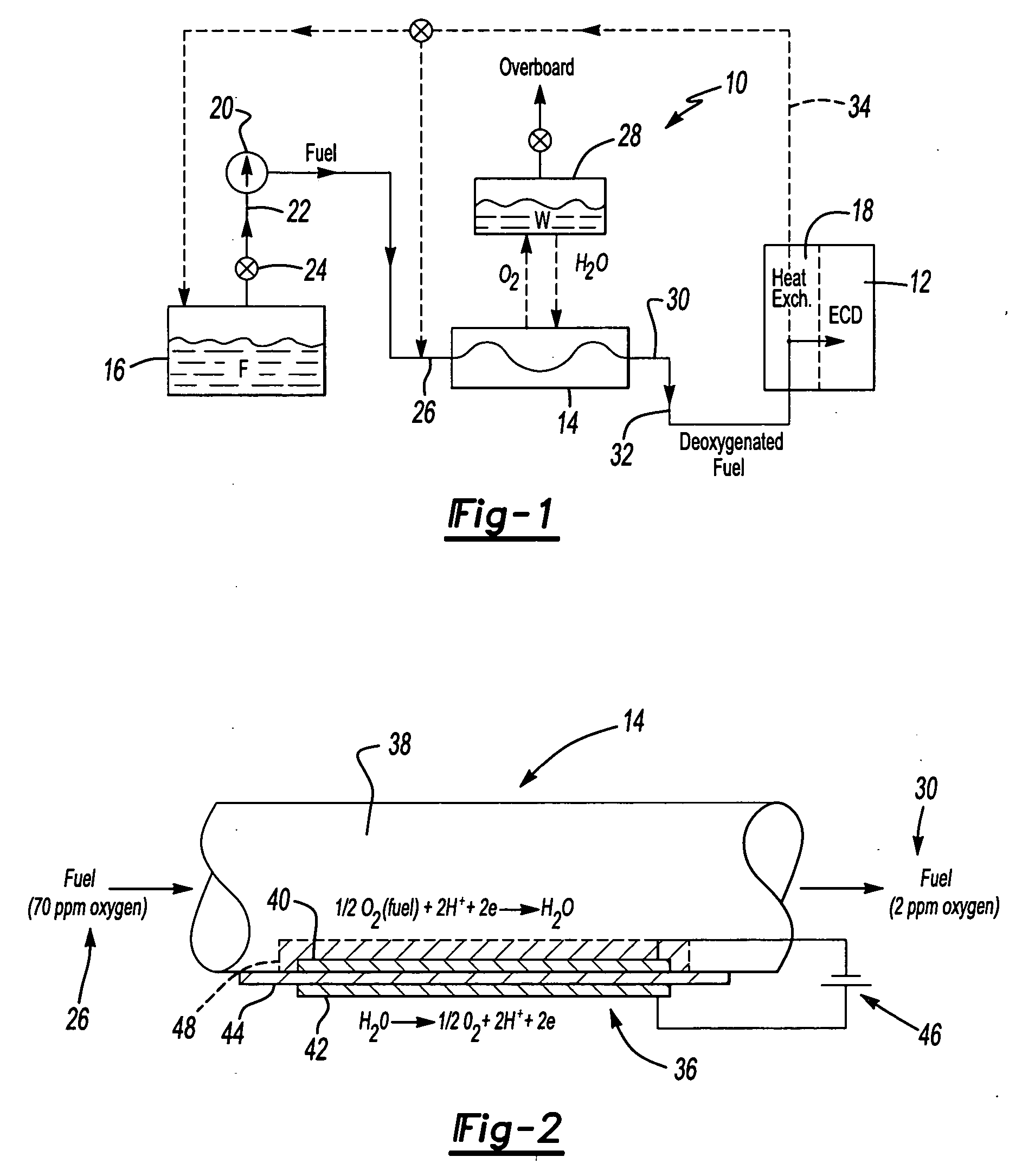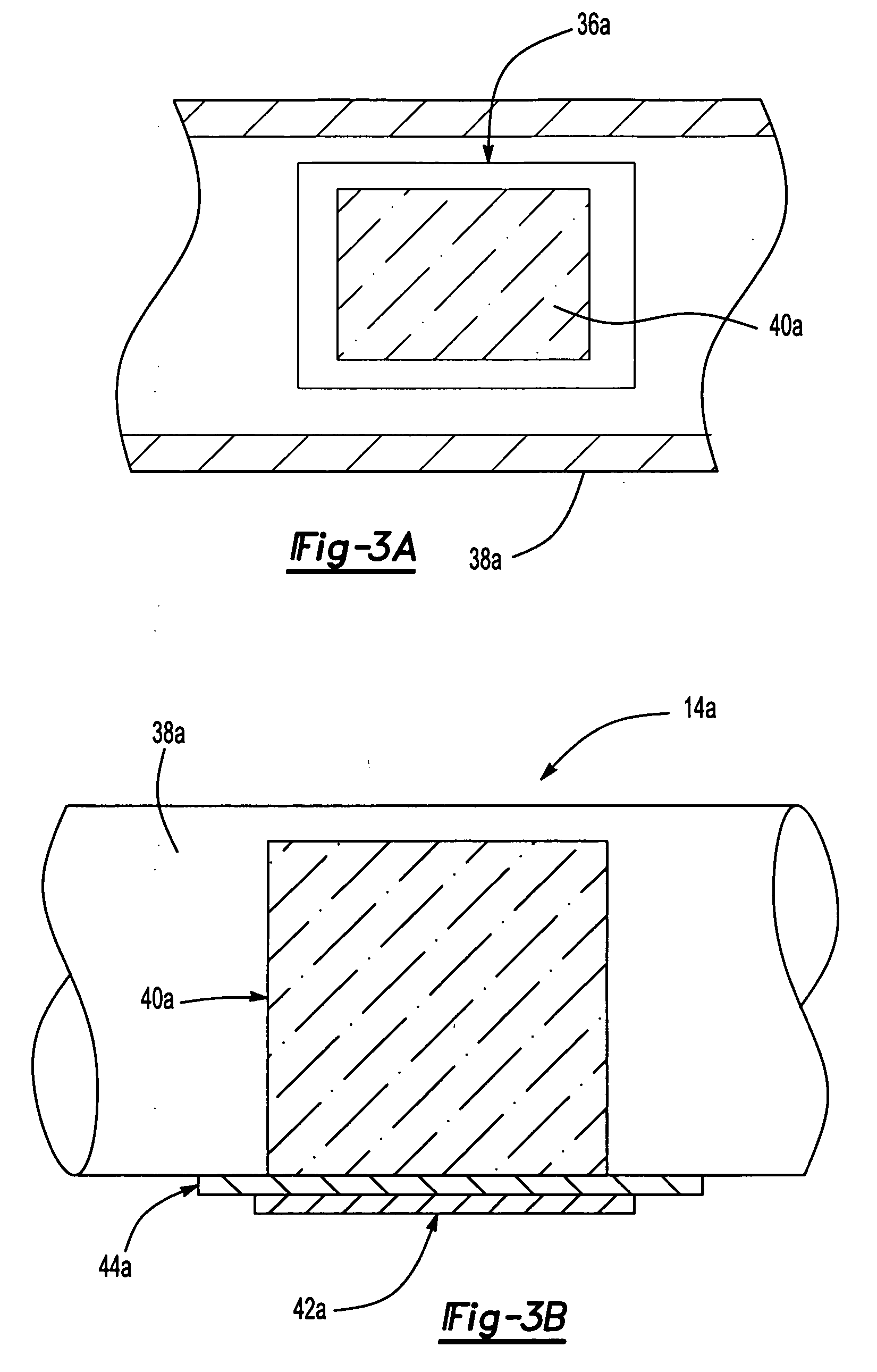Electrochemical fuel deoxygenation system
a fuel deoxygenation and electrochemical technology, applied in the field of electrochemical fuel deoxygenation system, can solve the problems of inhibiting combustion, affecting the fuel line, and affecting the combustion process, so as to reduce the amount of dissolved oxygen in the fuel, reduce the cost of operation, and reduce the effect of coking
- Summary
- Abstract
- Description
- Claims
- Application Information
AI Technical Summary
Benefits of technology
Problems solved by technology
Method used
Image
Examples
Embodiment Construction
[0017]FIG. 1 illustrates a general perspective view of a fuel system 10 for an energy conversion device (ECD) 12. A deoxygenator system 14 receives liquid fuel F from a reservoir 16. The fuel F is typically a hydrocarbon such as jet fuel. The ECD 12 may exist in a variety of forms in which the fuel, at some point prior to eventual use for processing, for combustion or for some form of energy release, acquires sufficient heat to support autoxidation reactions and coking if dissolved oxygen is present to any significant extent in the fuel.
[0018] One form of the ECD 12 is a gas turbine engine, and particularly such engines in high performance aircraft. Typically, the fuel also serves as a coolant for one or more sub-systems in the aircraft, and in any event becomes heated as it is delivered to fuel injectors immediately prior to combustion.
[0019] A heat exchange section 18 represents a system through which the fuel passes in a heat exchange relationship. It should be understood that ...
PUM
| Property | Measurement | Unit |
|---|---|---|
| Fraction | aaaaa | aaaaa |
| Fraction | aaaaa | aaaaa |
| Power | aaaaa | aaaaa |
Abstract
Description
Claims
Application Information
 Login to View More
Login to View More - R&D
- Intellectual Property
- Life Sciences
- Materials
- Tech Scout
- Unparalleled Data Quality
- Higher Quality Content
- 60% Fewer Hallucinations
Browse by: Latest US Patents, China's latest patents, Technical Efficacy Thesaurus, Application Domain, Technology Topic, Popular Technical Reports.
© 2025 PatSnap. All rights reserved.Legal|Privacy policy|Modern Slavery Act Transparency Statement|Sitemap|About US| Contact US: help@patsnap.com



